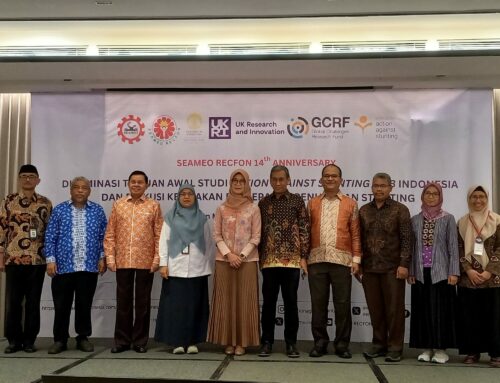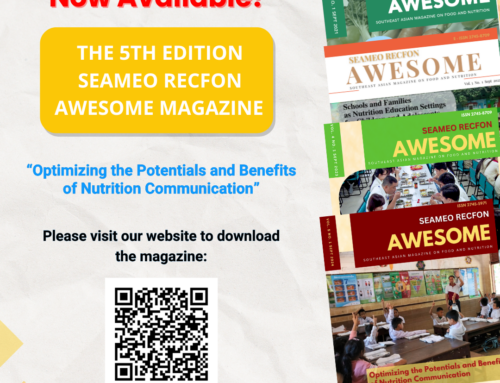The Southeast Asian Regional Centre for Food and Nutrition (RECFON) coordinated the publication of a reference book on Healthy School Canteen Policies, Programs and Best Practices in Southeast Asia as an inter-centre collaborative project with five other SEAMEO Centres as approved during the 2020 SEAMEO Centre Directors Meeting. The book can now be accessed through the Centre’s website.
This project generally aimed to facilitate nutrition education among school teachers and students in Southeast Asia through healthy school canteens. The project officially took off in November 2020 after obtaining the approval of the SEAMEO Executive Council as well as the commitment of five other SEAMEO Centres as partners. The other five SEAMEO Centres include the Regional Centre for History and Tradition (CHAT), Regional Centre for Special Education Needs (SEN), Regional Centre for Graduate Study and Research in Agriculture (SEARCA), Regional Centre for Technical Education Development (TED), and Regional Centre for Vocational and Technical Education and Training (VOCTECH).

The book contains a brief overview of the geographic and sociodemographic profile, educational system, malnutrition and eating habits among school-aged children and adolescents, policies and programs on school health and healthy school canteens, examples of healthy school canteen best practices, lessons learned and recommendations of six Southeast Asian countries, namely: Brunei Darussalam, Cambodia, Indonesia, Malaysia, Myanmar, and the Philippines.
Information contained in the book were obtained through semi-structured interviews and focused group discussions with key informants from 24 selected schools and relevant national government institutions engaged in school health and nutrition in the abovementioned countries. These schools represent different education levels and were selected according to various criteria agreed upon by the SEAMEO Centres with the relevant ministries of the above-mentioned countries that have direct relationship with schools.
The best practices are based on the opinions of school heads and teachers from the selected schools given their existing situations and may not necessarily be according to universal set of criteria of what a best practice is. Nevertheless, these best practices enable the schools to operate their school canteens toward ensuring the health and nutrition of their respective school communities. Further, these best practices can provide valuable insights on how healthy school canteens are being implemented in the different countries in the region.
The book is expected to generate interest and commitment from other schools in the region to also aim for operating a healthy school canteen to provide a heathy food environment for their respective school communities.





Leave A Comment